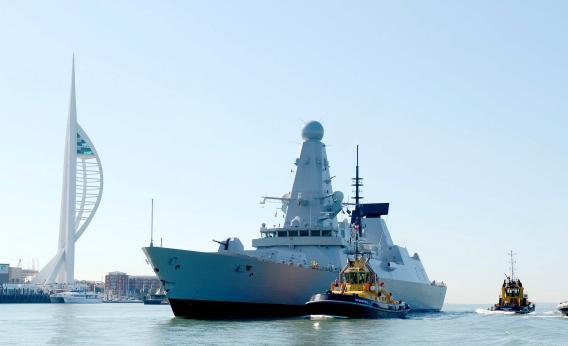When EADS (mostly Airbus) and BAE (mostly the artist formerly known as British Aerospace) announced they were pondering a merger that would create a European defense and aerospace juggernaut the thinking was that the big problems might come from governments. In practice, something like that could never work without the tacit approval of the U.S. and U.K. defense departments along with various continentals, and it’s difficult to work out an arrangement like that to please everyone.
And, indeed, Tory backbenchers immediately started pressuring David Cameron to veto the deal on basically nationalistic grounds—the idea that a great nation needs a great freestanding defense contracting conglomerate. But the worse news is that yesterday Invesco Perpetual, the biggest shareholder in BAE, dropped a bomb on the whole idea saying it “does not understand the strategic logic” underlying the deal. There are two main sticking points from Invesco’s perspective: one relating to the terms of the deal, and one relating to the basic underlying thinking.
On the deal itself, the tie-up is being presented as a merger of equals but EADS shareholders would end up with 60 percent of the shares of the merged entity. That reflects the fact that EADS is the bigger company, but Invesco complains that it “does not reflect BAE’s superior cash generation.” In other words, BAE shareholders would end up with a diluted stake in a less-profitable enterprise. It’d just be a bigger enterprise. The pursuit of size-beyond-reason is a classic case of managers acting as poor stewards of shareholder interests. Expansion of firm size correlates with higher CEO compensation even if the expansion does not add value, so you can see how this happens. And in nonmonetary terms, it’s more fun to run a larger global conglomerate than a smaller global conglomerate—you’re more of an important bigshot that way. On the deeper merits, Invesco is concerned that EADS is too much a creature of European governments. The German and (indirectly) French states both own large shares in EADS, with the Spanish government also holding a stake. The French government, in particular, has always been clear that it regards its ownership in EADS and its predecessors as a tool of state policy and not a money-making investment. That’s sensible of them in many ways, but it doesn’t necessarily mean you want to be their business partner.
On the flip side, the case for a merger is that there’s an expectation of long-term stagnation in U.K. defense spending. When a right-wing government is in office and hammering military spending, you know the outlook is bad. So the thinking is that BAE needs to take its technology, products, and expertise and join up with a larger outfit.
